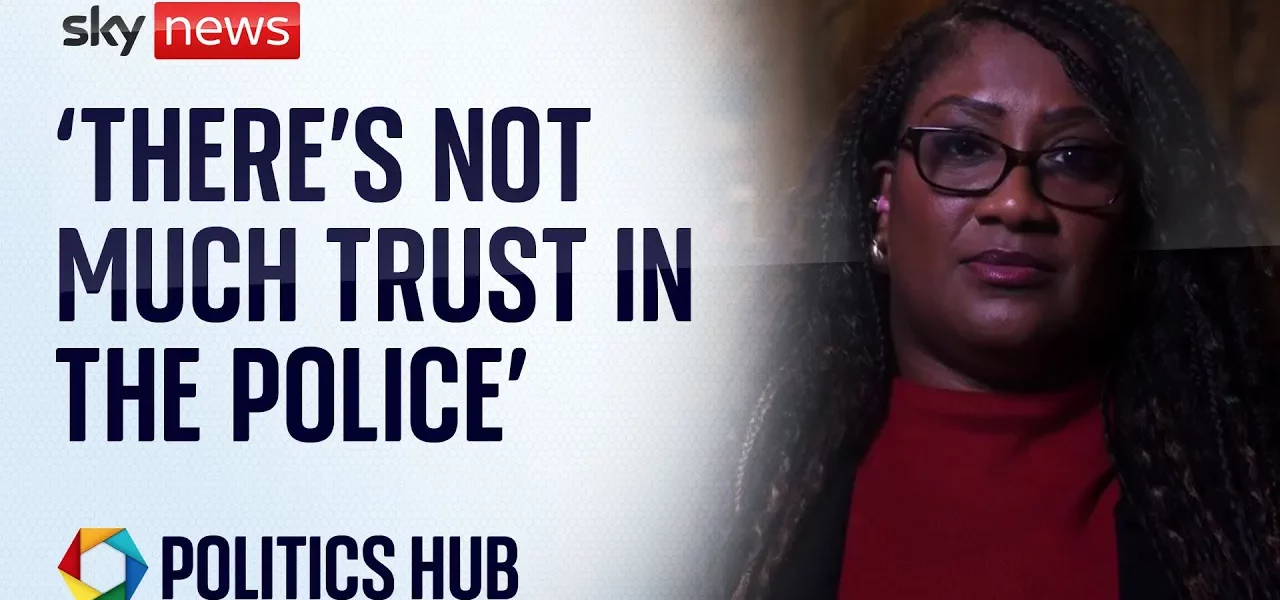Community Reactions to Recent Police Verdict: A Comprehensive Analysis

This article delves into the complex emotions and reactions surrounding the recent verdict in a police-related case that has sparked significant community discourse and protest, especially within the Black community. We will explore the implications of this verdict, the legal processes involved, and the ongoing discussions about reparations and trust in policing.
Introduction
The recent verdict regarding the police-related death of a young man has evoked strong emotions across various communities, particularly among those who have been directly affected. The family of the deceased is understandably grieving, and the community is questioning the outcomes of legal proceedings. This situation highlights not only the personal loss experienced by the family but also broader societal issues surrounding policing, justice, and the need for restorative measures. As we unpack this complex issue, it is essential to consider the multifaceted reactions from community leaders, legal representatives, and the public at large.
Understanding the Verdict and Its Impact
When discussing the verdict, it is crucial to consider the implications it has for the family of the deceased and the community at large. The reactions to the verdict reveal deep-seated feelings of anger and frustration, especially regarding the legal processes involved.
Family Reactions
The family of the young man has expressed devastation following the verdict. This emotional response is a natural consequence of losing a loved one, compounded by the feeling that justice has not been served. The community stands in solidarity with them, acknowledging their grief and demanding further investigation.
Community Sentiment
Across the community, there is a palpable sense of outrage. Many community members gathered to protest the verdict, showcasing their dissatisfaction with the legal system. Key points of concern include:
- The perceived lack of accountability for police officers involved in fatal incidents.
- The historical context of police violence against racial minorities.
- The need for systemic change within law enforcement agencies.
The Role of Legal Processes in Community Trust
The legal processes surrounding police accountability are often scrutinized, particularly in cases involving the use of force. The recent case exemplifies these complexities.
Respecting Legal Processes
While it is essential to respect legal outcomes, there is also a call to acknowledge the feelings of those who believe the system has failed them. The community’s frustration stems from the belief that:
- There are very few instances where police officers face charges for fatal encounters.
- The lack of transparency in investigations leads to a loss of trust among the public.
- Families of victims often feel sidelined in the judicial process.
Calls for Transparency and Accountability
Community leaders emphasize the need for transparent investigations into police actions. This includes:
- Independent oversight of police conduct.
- Community involvement in discussions about policing practices.
- Regular updates on investigations to the public.
Rebuilding Trust in Policing
Rebuilding trust within the community, particularly among Black residents who feel unfairly targeted, is a monumental task that requires concerted efforts from law enforcement agencies.
Community Engagement Strategies
To restore faith in the police, community leaders suggest several strategies:
- Enhancing community policing efforts to foster closer relationships between officers and residents.
- Organizing regular community forums to discuss issues related to policing and public safety.
- Implementing training programs for officers on cultural sensitivity and de-escalation techniques.
Broader Discussions on Reparations
The conversation surrounding the recent verdict has also opened the door for broader discussions on reparations and the historical injustices faced by the Black community.
Understanding Reparations
Reparations can take various forms, and it is important to explore what this means for communities impacted by historical injustices.
- Financial reparations to individuals and communities affected by slavery and colonialism.
- Educational initiatives aimed at raising awareness of historical injustices.
- Returning cultural artifacts and human remains to their countries of origin.
Governmental Responsibility
The community feels that the government has a moral obligation to address past wrongs, and not doing so can lead to further disillusionment. As discussions gain momentum, it is crucial for policymakers to engage with community leaders and address these concerns in a meaningful way.
Conclusion
The recent verdict has ignited a firestorm of emotions and discussions within the community, reflecting deep-seated issues related to trust, accountability, and justice in policing. As families grieve, community leaders call for systemic change, transparency in legal processes, and a commitment to addressing historical injustices through reparations. It is imperative that ongoing dialogues continue, fostering understanding and paving the way for a more equitable future. We encourage readers to engage with these critical conversations and advocate for their communities.
For further insights into community relations and justice reform, explore our related articles on community initiatives and policing reform.
“`




